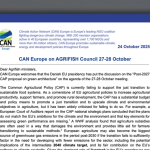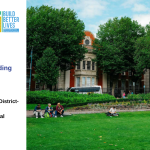Brussels, 30 November 2022 – Today’s European Commission proposal to create a carbon removals certification framework leaves too many important questions unanswered, such as by whom and how the certificates will be used, risking it becoming a tool for delaying decarbonisation and bringing accounting loopholes into climate policy.
The regulation, which outlines in broad strokes a quality criteria for removals and what the certification process and its governance will look like, aims to address different types of “carbon removal activities” – geological storage, carbon farming and carbon storage products. These types contain completely different methods that vary significantly e.g. on their permanence and risk of reversal, on their side effects and their accounting accuracy. This is why these methods need to be kept separate from one another, which currently is not the case.
“All carbon is not equal. Fossil carbon cycle is millions of years, but the biogenic carbon cycle is only a few years to a few decades. These are in no way comparable nor interchangeable”, said CAN Europe’s Policy Expert on Land Use and Removals, Ulriikka Aarnio.
Furthermore, the proposal does not exclude that certificates would be used on voluntary markets.
“Incentivising removals with offsetting is not only a fool’s game, but given the urgency we’re in, it is also now a dangerous undertaking. For removals to deliver a positive impact for the atmosphere, they need to be additional to emission reductions, not done instead of them. Allowing fossil pollution to continue during this critical decade with temporary offsets does nothing else than delay decarbonisation,” said CAN Europe’s Policy Expert on Land Use and Removals, Ulriikka Aarnio.
The preferred nature based activities are ecosystem protection and restoration, but many land use activities that are currently being done in the name of carbon removal are further degrading ecosystems and biodiversity. Currently the proposal does not offer any tools to ensure that harmful practices are excluded.
“It is critical that climate change and biodiversity crisis are tackled together. This notion is particularly important when talking about carbon removal, as the carbon removal method that currently exists in large scale is photosynthesis. Climate change is further exacerbated by biodiversity loss and ecosystems decline, and climate change in turn increases stresses on natural systems and biodiversity. Neither will be successfully resolved unless both are tackled together,” said CAN Europe’s Policy Expert on Land Use and Removals, Ulriikka Aarnio.
The Regulation proposal will next be forwarded to the co-legislators for an ordinary legislative process.



